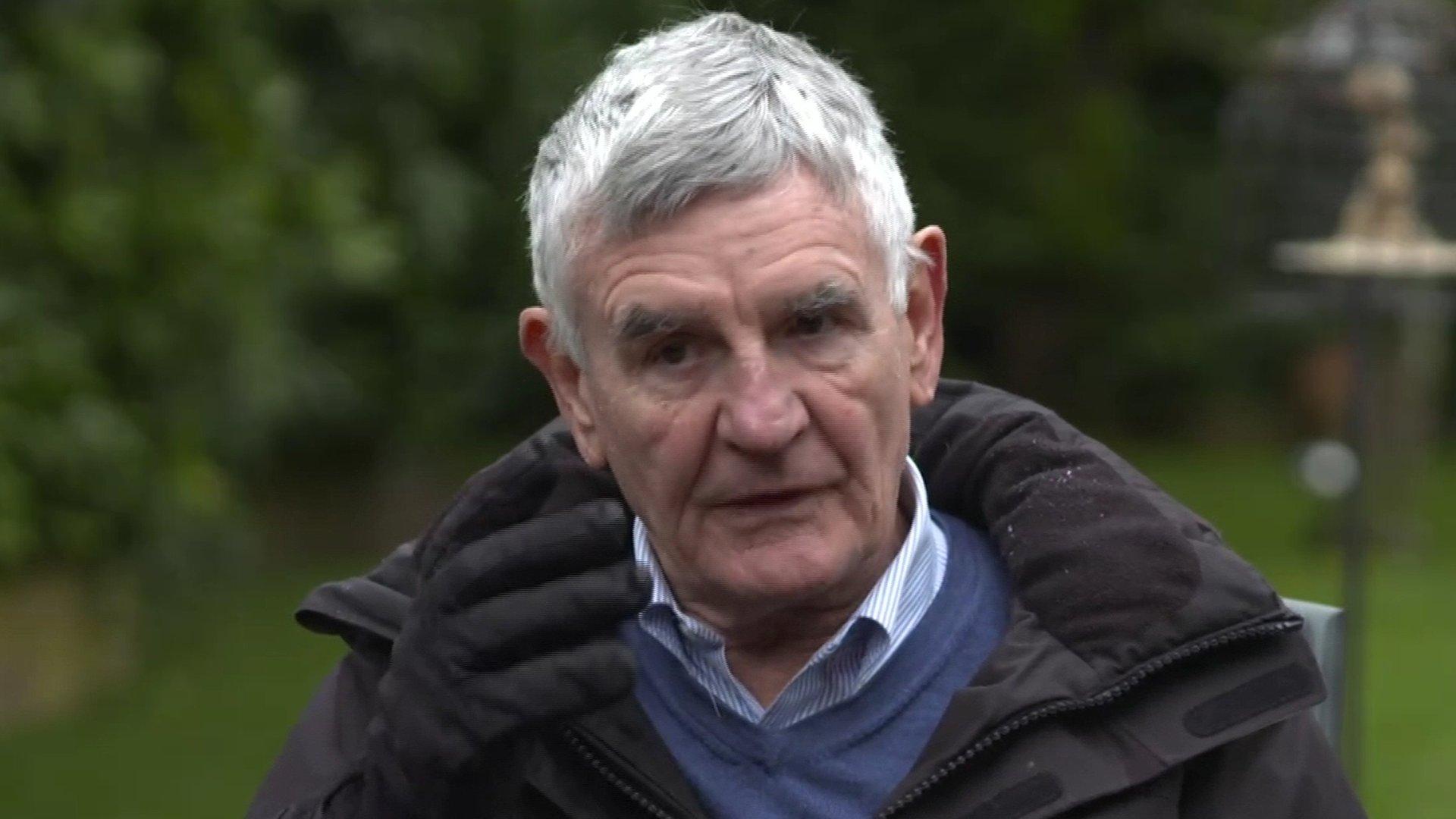Michael Lipman: Ex-England flanker on his daily struggle with life after concussions
- Published
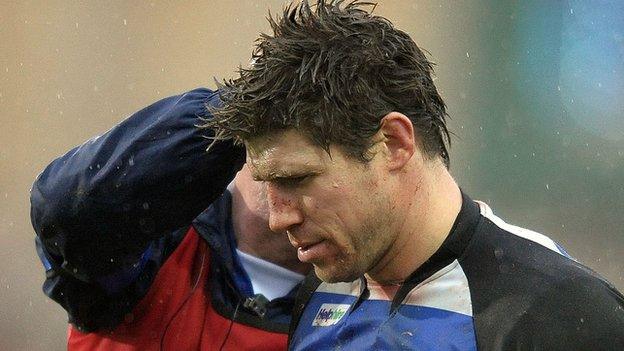
One of Michael Lipman's last on-field head injuries came against Toulouse at The Rec in 2009
When former international rugby player Michael Lipman began struggling to remember things just said to him by his wife, he knew he had a problem.
Although a long way short of 40 years old, he also became prone to mood swings, irritability, sudden loss of temper and moments of irrational behaviour.
Given how many times in the past he had been concussed on a rugby field, though, it all added up.
And now Lipman finally knows the score.
Last month, the Australia-born former Bristol, Bath and England flanker was diagnosed with Chronic Traumatic Encephalopathy (CTE), a progressive degenerative disease of the brain found in people with a history of repetitive brain trauma.
He is one of a group of players, including former England-mate Steve Thompson and Wales international Alex Popham, who have launched a legal fight against the rugby authorities for alleged negligence in the wake of developing dementia symptoms.
And Lipman told BBC Points West that the pressure it has placed on his marriage and family life is not the only side-effect of a condition doctors say was caused by too many concussions.
"It was about two years ago that I really realised the mood swings," he said. "The frustration, the irritability, the impatience, they had kicked into another gear.
"You've got your memory loss. Did that really happen? But that's when it became another level.
"My long-term memory is actually not that bad. Schooldays and beyond that. But right now I'd struggle to tell you what I did this morning.
"Your ability to comprehend and to speak words. Problem solving becomes very difficult.
"I've always loved having a chat but how embarrassing is it, not being able to finish a sentence?
"I've not had a proper job for two years. I've been labouring on a construction site just to bring some money in.
"But the main thing is the way it has affected my family. It's like you're on edge. You're irritable all the time and it puts pressure on relationships. My wife goes through a hell of a lot every day.
"My mother-in-law came to our house. I went out for a walk, came home again and I said to my wife: 'Your mum and I had a nice chat on our walk'. But she was never there.
"You then know your brain is playing tricks. I can see her next to me walking. I know it happened, yet it didn't really happen.
"I had my CTE diagnosis four weeks ago. And now I have to admit I'm really worried for my family."
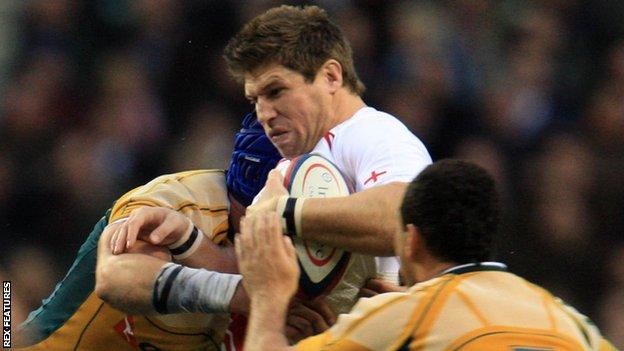
Michael Lipman won 10 caps for England between 2004 and 2008
'The scariest moment of my life'
The most upsetting incident for Frances Lipman was when her husband left their baby in a cot for an hour and a half unattended.
"The baby was sound asleep and nothing happened," she said. "But that was the scariest moment of my life, knowing he could do that.
"He gets disorientated night and day, which scares the life out of me. There have been one or two instances when he has confused morning with night."
"Some things have been hard to talk about. He has never talked about it because he was ashamed."
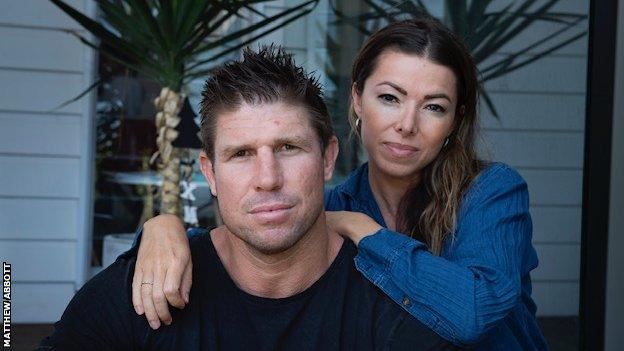
Michael Lipman is supported by his wife Frances
The Lipmans are banned from their local pub for a year after Michael had a go at a bartender.
"You maybe expect it with a 70 or a 80-year-old. That crazy old uncle rabbiting away in the corner at Christmas. But not when you're as young as Michael. It's taxing to see that struggle," said his wife.
"He once woke up one morning in a neighbour's car. It was years ago and he laughed it off for years but it's not funny any more."
Although Frances knows her husband's condition is going to get worse, facing up to it has been a big breakthrough for both of them - and their family.
"All these things are due to the head knocks and concussion. We didn't put the pieces together. Now it all makes sense," she added.
'The more you got concussed, the easier it was next time'
Lipman is the first to admit that, had he played rugby under the current safety protocol, he might not be in the position he now finds himself.
But in his 12-year professional rugby career, from 2001 in England to his native Australia in 2012, a sense of macho pride drove him to carry on after blows to the head in the same way.
The same is true of many other rugby players, footballers, cricketers, jockeys boxers.
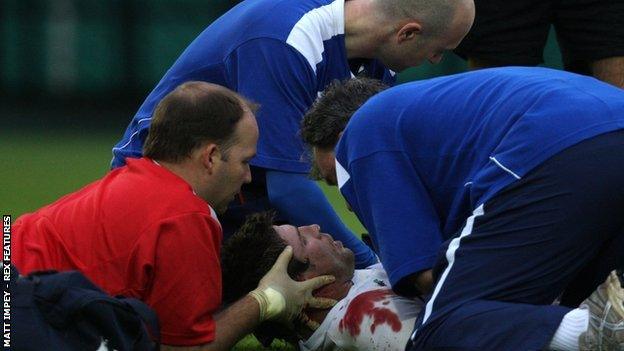
Michael Lipman suffered a clash of heads playing for Bath against Edinburgh in August 2008
"The way the rules on concussion are now is the way it should have been back then," he said.
"It all went on you how you felt. And what's any player going to say? You're always going to say you want to play. The more you got concussed, the easier it was next time.
"It's got to be taken out of the players' hands. You're not thinking straight.
"Whether it's from repetitive hits to the head, being completely knocked out or sub-concussions, or a combination of all of them.
"Especially early in my career. You're, young, enthusiastic and ambitious, yes, that's the right word, ambitious, to get out there and prove yourself. I'd do anything I could to be on the field.
"I didn't have anyone telling me 'I'm not letting you back out there. The decision was always mine.
"Latterly in my career came a stage when I was worried about myself. But that comes with maturity. There were five times in my last season at Bath in 2009 when I was carried off."
Michael and Frances Lipman were talking to BBC Points West's Alistair Durden
Related topics
- Published18 December 2020
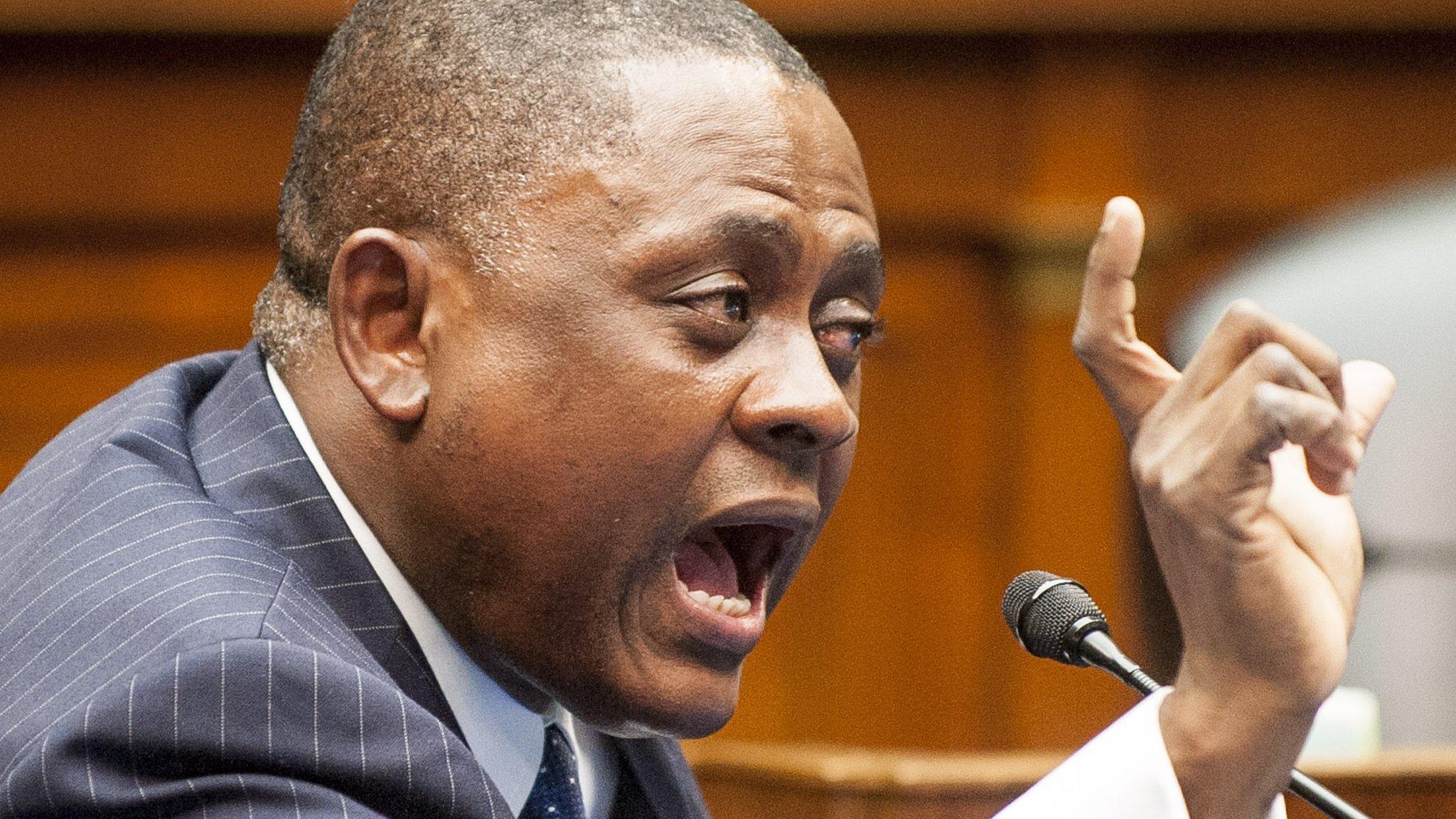
- Published17 December 2020
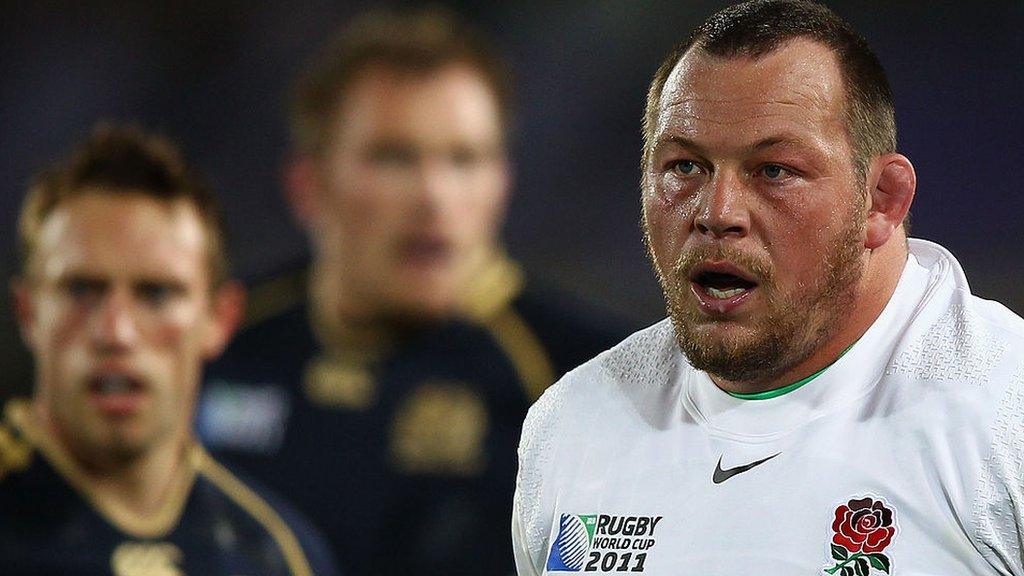
- Published16 December 2020
